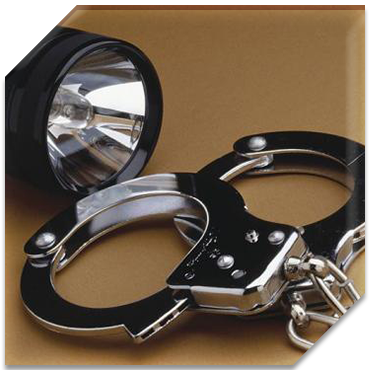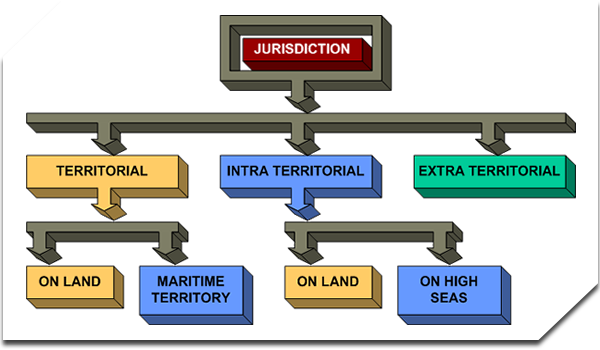ZAFAR & ASSOCIATES - LLP | Criminal Law Services - Pakistan

Blue Collar Crime
Crime & PreventionBlue collar crimes are crimes which are more visible, detected sooner, and occur on frequent basis.

White Collar Crime
Crime & PreventionWhite-collar crimes have a drastic effect over the economy and financial state of a country.

Search & Investigation
Search & Background ServicesOur detectives and investigators use many means to determine the facts in a variety of matters.

Cybercrime Law
Cybercrime & PreventionCybercrime, also known as computer crime, the use of a computer as an instrument to perform an illegal act.
Criminal Law Practice in Pakistan

Criminal law concerns the system of legal rules that define what conduct is classified as a crime and how the government may prosecute individuals that commit crimes, in instances where an individual fails to adhere to a particular criminal statute, he or she commits a criminal act by breaking the law.
Criminal Law is an extreme field of practice coverning all those aspects that entail crime as its factor. Every act or omission that violates a command, derives its force from legislature or from authority - either political or religious - that has absolute sway over the matters of state is considered to be a crime. This is the reason that state stands as a prosecutor against the alleged culprit.
Pakistan has a very detailed criminal law that is though outdated to some extent but it tends to cover all aspects that do constitute a crime. To understand the criminal law in Pakistan one needs to understand the socio cultural phenomena of this country also. Most of the criminal law that has been prevailing in Pakistan was introduced by the British Empire when India was a colony and Pakistan was part of it. Even then a care was taken to understand the social conditions and criminal law was tried to be conditioned according to the cultural circumstances of the colony. This is the reason that it was willfully accepted by India and Pakistan both after their freedom from British Empire. Code of Criminal Procedure (V of 1898) that was implemented in colony is still largely the prescribed criminal procedure followed by the courts in Pakistan. Similarly the Penal Code (XLV of 1860) that was introduced in colony is still largely followed in shape of Pakistan Penal Code.
Territorial Jurisdiction
Criminal courts acts within their prescribed jurisdiction under the law. The territorial jurisdiction of an ordinary criminal court can be tabulated as follows:

Supreme Court being the most apex court of Pakistan has the supreme administrative authority over functionality of all the criminal courts of Pakistan.
When any person is apprehended for committing any crime, after investigation – that is to be completed within 14 days u/Sec. 173 of Criminal Procedure Code (Cr PC) – he / she is subjected to rigorous trial in the prescribed criminal court that has jurisdiction in the said matter. Court before commencement of trial is duty bound to allow an alleged offender to appoint defence counsel of his / her choice under Article 10 of Constitution of Pakistan. Then Court pronounces a Charge against an alleged offender that describes the nature of offence and the nature of act or omission that constitutes a specific crime. Thereafter, prosecution is given an opportunity to present evidence that it has against the alleged offender. The defence counsel of alleged offender is given full opportunity to cross examine and object to the prosecution evidence, within the prescribed limits of law. Though prosecution being the duty of the state is to be conducted by the state appointed counsels but any person who being aggrieved by the offence can appoint his / her own prosecution counsel, in addition to the state counsels already duty bound to prosecute. After the prosecution concludes its evidence the presiding Judge put certain questions u/Sec. 342 Cr PC to the alleged offender. These questions are very crucial as presiding Judge gives an opportunity to alleged offender to explain incriminating evidence against him / her. Alleged offender is also given an opportunity to appear as his own witness. Moreover he / she is also given an opportunity to present documentary evidence and witnesses in his / her defence. After the conclusion of defence evidence the trial is concluded and the Presiding Judge pronounces judgment. Judgment could be of acquittal or punishment. In both cases prosecution and alleged offender has right to appeal against the judgment of the trial court. The appeal is made to the immediate superior court of the trial court.
Punishment is universally accepted mode of retribution and deterrence. Punishment varies with the nature of crime. Different punishment can be given for the same crime. But retrospective punishment and double punishment in any case is specifically prohibited by the Constitution of Pakistan. Article 12 states: “No law shall authorise the punishment of a person for an act or omission that was not punishable at the time of the act or omission”, similarly Article 13 states: “No person shall be punished for the same offence more than once”. Article 13(b) also states: “No person shall, when accused of an offence, be compelled to be witness against himself”.
Constitution of Pakistan specifically demarcates the contours of Criminal Law of Pakistan by stating unequivocally in Article 9: “No person shall be deprived of life or liberty save in accordance with law”. And the Law shall never be against the universally accepted Fundamental Rights, this is specifically and explicitly enshrined in Article 8 of the Constitution of Pakistan.
The fundamentals of criminal law are based on the principle of justice, equity and good conscience. They provide adequate guidelines for the formulation a rational penal policy. In order to be influential the criminal law must have four important elements, that is, politicality, specificity, uniformity and penal sanction. The functioning of the criminal justice system is wide enough to achieve its goals and objectives. Its ultimate goal is undoubtedly to make the society safer for its citizens. Most widely accepted aims of the criminal law include:
The enforcement of criminal law should reflect the society’s disapprobation for criminal activity through apprehending, convicting and punishing the offenders.
Deterring criminals from indulging in criminal activities and at the same advising the other people as to how to avoid falling a victim to a crime.
Criminal law should be beneficially used to rehabilitate the offenders and incapacitating those who might otherwise prove to be a potential danger to the society.
Ensuring safety and security of people through maintenance of law and order.
Helping the victims to get adequate compensation from the offender wherever possible.
Efficient and fair application of law ensuring proper treatment of suspects, defendants, those who are held in custody and witnesses. Also ensuring that the innocents are acquitted without harassment and guilty is duly punished.
Ensuring that criminal justice system is accountable to the society.
In Pakistan the major statutes relating to criminal law are the Pakistan Penal Code 1860 and the Criminal Procedure Code, 1898. Out of these two the former deals in defining all the offences and mentioning their punishments along, the former is specifically a code of procedure. The criminal procedure code is essentially a procedural law, which provides machinery for the punishment of offenders against the substantive criminal law example the Pakistan Penal Code. In fact the two codes are to be read together. Apart from these two statutes, which specifically deal in the criminal branch of law, there are certain other general laws which attract criminal liability like, Negotiable Instruments Act which attracts criminal liability in case of dishonoring cheque, although new provision of section 489-F has also been added in Pakistan Penal Code, regarding dishonestly issuing a cheque. Information Technology Law is also going to be drafted very soon which will deal with the wrongs relating to the Computer and Information Technology etc. The firm possessing an expertise in this branch has, through its most experienced and efficient attorney’s has successfully handled a pile of such cases involving penal prosecution. The experience of the lawyers at work in this arena has provided us a distinct position from the rest.
The Criminal Procedure Code prescribes the Constitution of the Criminal Courts and offices and speaks of the powers of the courts. It contains various general provisions pertaining to the information to the Magistrates and Police and gives the procedure of arrest, escape and relating to the process to compel appearance through summons, warrant of arrest, proclamation and attachment and other rules regarding processes. It also prescribed the processes to compel the production of documents and other movable property and for the discovery of persons wrongfully confined through summons to produce and search warrants. The Criminal Procedure also helps for prevention of offences through security for keeping the peace and good behavior and to prevent the unlawful assemblies, public nuisances or apprehended danger, disputes as to immoveable property, preventive action of the police and their powers to investigate. The Cr.P.C also deals with the proceedings in prosecution and gives the jurisdiction to Criminal Courts according to place of inquiry or trial, complaints to the Magistrates, commencements of proceedings before Magistrates and inquiry into cases triable by the Courts of Sessions or High Courts. It also prescribes nature and form of charges and joinders of charges and gives the procedure of trial by Magistrates including summary trial and trial before High Court and Court of Sessions and gives the mode of taking recording evidence in inquiries and trial and finally judgment.
The Criminal Procedure Code further defines the steps of submission of sentences for confirmation, execution, suspensions, remissions and computations of sentences, previous acquittals and convictions. This also dictates the steps of Appeals, References and Revisions. It further has special provisions relating to cases in which European and Pakistan British subjects are concerned and lunatics. It also defines the strategy of proceedings in case of certain offences affecting the administration of justice, of the maintenance of wives and children. It also ordains the actions regarding directions of the nature of a Habeas Corpus and have the supplementary provisions regarding public prosecutor, bail, commissions for the examination of witness, special rules or evidence. Provisions as to bonds, of the disposal of property, transfer of criminal cases and supplementary provisions relating to European and Pakistan British subjects and others. It also specifies the conduct of irregular proceedings and miscellaneous matters.
Pakistan Penal Code, 1860 specifies the extent of punishments against different crimes and offences committed within Pakistan and beyond Pakistan but which by law may be tried within Pakistan and extra territorial offences. The PPC further assigns the policy of general exceptions, right of private defense, abetment, and criminal conspiracy. It further requires the actions against offences against the state, relating to the Army, Navy and Air Force and against public tranquility.
It also dictates the policy against offences by or relating to public servant, offences relating to offences and contempt of the lawful authority of public servants. It further stipulates the system against the false evidence and offences against public justice and relating to coins and Government Stamps and pertaining to weights and measures. The PPC also assigns the policy relating to offences affecting the public health, safety, convenience, decency and morals. It also assigns a scheme regarding offences relating to religion, affecting the human body, wrongful restraint and wrongful confinement, of rape and of unnatural offences. This also ordains the steps against offences against property through theft, extortion, robbery and dacoity, hijacking, criminal misappropriation of property, criminal breach of trust, receiving of stolen property, of cheating, fraudulent deeds and disposition of property, mischief and criminal trespass.
The PPC also defines the punishment against offences relating to documents and to Trade or Property marks through forgery or false documents, counterfeiting currency and bank notes and criminal breach of contracts of service. It also dictates the punishment against offences relating to marriage, defamation, criminal intimidation, insult and annoyance and the attempts to commit offences.
Our Core Competencies
Collaborative Skillset
Collaborative lawyers trust the wisdom of the group; lone wolves and isolationists do not do any good anymore.
Emotional Intelligence
Distant, detached lawyers are relics of the 20th century, the market no longer wants a lawyer who is only half a person.
Technological Affinity
If you can not effectively and efficiently use e-communications, and mobile tech, you might as well just stay home.
Time Management
Virtually a substantial part of lawyers difficulties in this regard lie with their inability to prioritise their time.

